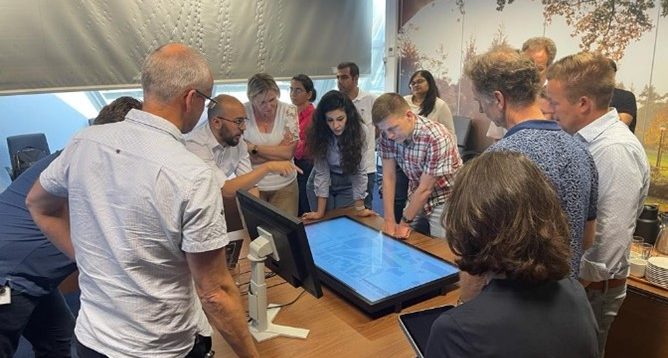University of Twente and Vrije Universiteit cooperated in a project to explore the potential of digital twins for developing sustainable, climate-resilient urban development strategies. Digital twins offer a realistic representation of the built environment based on a variety of spatial data sources. In combination with spatially explicit models that simulate specific systems or processes (e.g., urban heat island formation) they hold great promise for supporting urban planning and design. The research teams of UT and VU both worked on different aspects of digital twins and this project allowed them to share experiences in data preparation, spatial analysis and visualisation. VU developed an approach to map (changes in) urban green based on the interpretation of detailed remote sensing images to support the analysis of its benefits for the city’s inhabitants. UT concentrated its efforts on climate adaptation in Enschede and looked into ways to visualise current urban heat island in the city and assess the impact of strategies to limit this effect. A final version of the visualisation and analysis tool was presented to a delegation of Enschede municipality staff in an on-site meeting June 12, 2023.
The project yielded data sets, tools and documentation (a tutorial and an assignment) that were delivered to the participating municipalities and that are available to the wider research community.
The Physiological Equivalent Temperature (PET) tutorial is available from the open science platform Zenedo: Cárdenas, Ivan L., Morales, Luis Rodrigoandrés, Koeva, Mila, Atun, Funda, & Pfeffer, Karin. (2023). Digital Twins for Physiological Equivalent Temperature Calculation Guide. Zenodo. https://doi.org/10.5281/zenodo.8306456 . The associated software can be downloaded from Github: https://github.com/ivan-cardenas/PET-DigitalTwins/, while an instruction video can be viewed here.
The green space assignment and its datasets are available from: Lynn Bouwknegt, Eduardo Dias, & Eric Koomen. (2023). Mapping Urban Green Space. Zenodo. https://doi.org/10.5281/zenodo.8138295.

